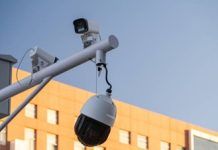Goa’s capital Panaji is one of the country’s safest cities vis-a-vis child safety on roads, a survey conducted by Nissan-SLF has revealed. The ‘Study on Rear Seat-Belt Usage and Child Road Safety in India’ is a multi-city research conducted by Nissan India and Delhi-based SaveLIFE Foundation in nearly a dozen Indian cities. According to the study, Panaji also ranked the highest in designated speed-limit zones near schools. The survey also revealed that road safety pro-activeness was also visible in the enforcement carried out by the authorities there.
Panaji has proved to be an exception, with a majority (63 percent) of its respondents stating that they felt safe with their children’s pedestrian movement on the city’s roads, the survey states, as against other Indian cities where as many as 60 percent of the parents of young children said they find children’s movement on city roads unsafe. Other cities which featured in the survey were Delhi-NCR, Mumbai, Bengaluru, Jaipur, Lucknow, Cochin, Guwahati.
Parents were also asked about safety measures in school zones. More than 90 percent people in Panaji said there were road signs informing people of the presence of schools. Panaji also ranked highest (93.8 percent) in designated speed-limits around schools,” the report said. The report marks Nissan India’s data-driven intervention in India’s road safety crisis, which is currently responsible for 53 crashes and 17 deaths every hour.
“While there have been various initiatives undertaken to raise awareness around road safety in India, the importance of wearing rear seat belts has been completely neglected. At Nissan, it is our vision to enrich people’s lives and through this initiative, we aim to raise awareness around the usage of rear seat belts,” Thomas Kuehl, President, Nissan India, said in a statement issued earlier.
At 59 percent, parents in Panaji felt that the enforcement in slow traffic zones (schools, children parks) was ahead of the national average of 36.8 percent. Perhaps this is why a majority of the city’s parents (76.1 percent) showed greater trust in school authorities in providing safe and secure transport facilities,” the report said. The study recorded responses through 6,306 face-to-face interviews and 100 in-depth expert interviews.








